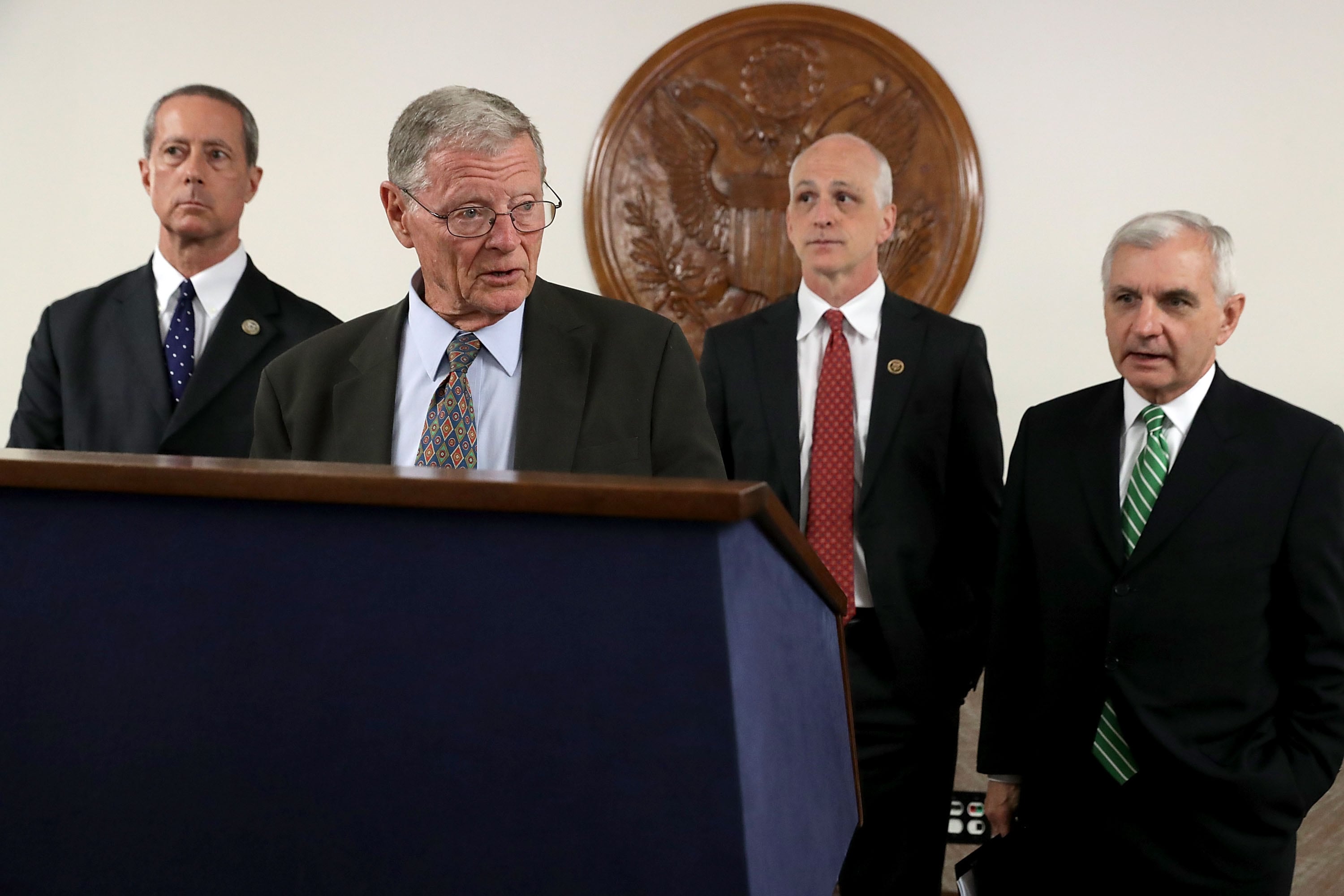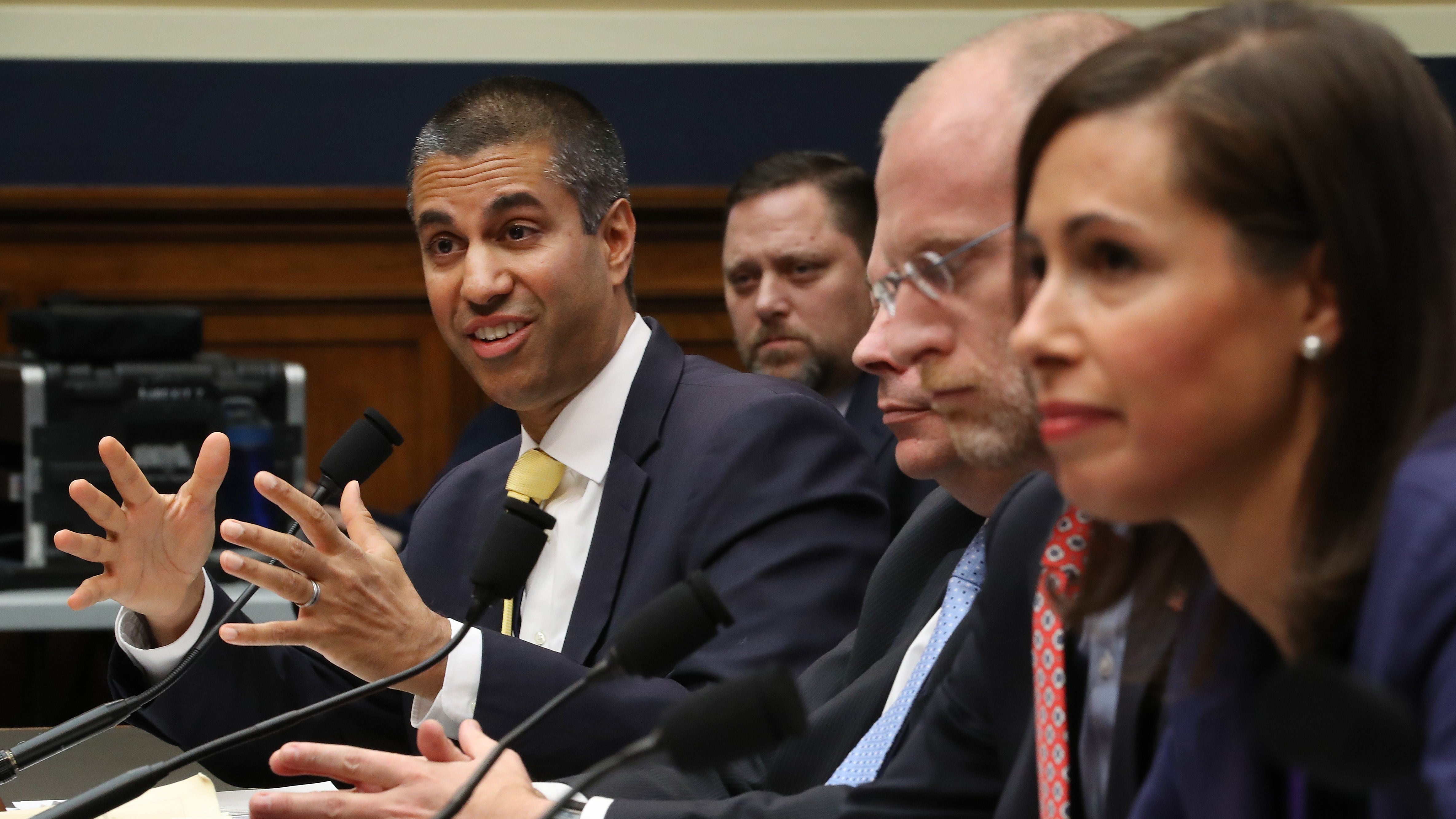This story was updated 4/20 at 10:45 AM EST to reflect the official vote by the FCC.
The Federal Communications Commission announced April 20 that it has unanimously approved a long-standing application from Ligado Networks to operate in the L-band spectrum, overriding concerns from the Department of Defense and other government agencies which were worried the company’s plan will cause damage to the Global Positioning System.
The approval had been expected since Friday, when sources told C4ISRNET that the commission’s three Republican members all voted in favor of the measure; a simply 3-2 majority vote is required for passage.
The vote appears to bring to a close the latest chapter in an almost decade-long fight between the Pentagon and Ligado, previously known as LightSquared. C4ISRNET first broke the news that the FCC would move forward with Ligado’s request on April 10.
“I thank my colleagues for coming together on a bipartisan basis to support Ligado’s application,” said FCC chairman Ajit Pai. “This vote is another step forward for American leadership in 5G and advanced wireless services.”
The order included what the FCC described as “stringent conditions” to ensure that the GPS satellite signal would not experience harmful interference.
Sources told C4ISRNET that the push to consider the effort came from the White House, led by Larry Kudlow’s White House National Economic Council. Kudlow has expressed interest in the economic benefits of expanding the nation’s 5G capabilities. In addition, Attorney General Bill Barr has been a vocal supporter of Ligado’s bid, which he views as a way to grow America’s 5G capabilities to challenge China.
“Freeing up L-band spectrum for use in tandem with the C-band, as the Chairman proposes, should greatly reduce the cost and time it will take to deploy 5G throughout the country and would be a major step toward preserving our economic future,” Barr said in a Thursday statement. “I hope the full Commission moves forward quickly.”
RELATED

In a statement late in the evening of April 17, a Pentagon spokesman reiterated the department’s complaints.
“Americans rely on our Global Positioning System (GPS) each day for many things: to locate citizens in need of emergency assistance through our E-911 system, to secure our financial system, to order and receive shipments, to travel by car for work and leisure, to facilitate commercial trucking and construction work, and even to make a simple cellphone call," the statement read. “Our Departments rely on GPS each day for all those reasons as well to coordinate tactical national security operations, launch spacecraft, track threats, and facilitate travel by air and sea. The proposed Ligado decision by the Federal Communications Commission will put all these uses of GPS at risk. That’s why our Departments - and almost a dozen other federal agencies - are strongly opposed to the Ligado proposal and have asked for its denial.”
Wide opposition
L-band is described as the range of frequencies between 1 to 2 GHz. GPS, and other international navigation systems, rely on L-band because it can easily penetrate clouds, fog, rain and vegetation. Ligado owns a license to operate the spectrum near GPS to build what the firm describes as a 5G network that would boost connectivity for the industrial “internet of things” market. The company uses the SkyTerra-1 satellite, which launched in 2010 and is in geostationary orbit, and it has planned to deploy thousands of terminals to provide connectivity in the continental United States.
Over the years, Ligado officials have argued their system would use less spectrum, have lower power levels and reduce out-of-channel emissions. In the face of complaints from major commercial GPS companies such as Garmin and John Deere, Ligado has also offered to reduce the amount of spectrum it had initially planned. The company has also said it will work with government agencies to repair and replace equipment if necessary.
Those arguments have been dismissed by the Defense Department, which has focused on potential interference to the GPS network that could come from Ligado’s plans. As recently as March 24, defense leaders were sending letters to the National Telecommunications and Information Administration (NTIA), letters that were not made public, despite a request from the DoD, until they were reported on by C4ISRNET.
While the Pentagon has been the most vocal in its opposition to Ligado’s plan, it was hardly alone. A letter sent from the Air Force on Feb. 20 opposing Ligado’s plan was co-signed by the departments of Commerce, Interior, Justice, Homeland Security, Energy and Transportation, as well as NASA, the Federal Aviation Administration and the National Science Foundation.
The Aerospace Industries Association trade group also issued a statement April 16, saying the FCC’s decision to move forward with Ligado’s plan “disregards the serious concerns raised by various government agencies about the harmful impacts to GPS. We urge the FCC to reject the Chairman’s proposal and adequately protect the GPS network that underpins our nation’s military operations and the safety of our airspace.”
In the last week, bipartisan opposition to the application grew in Congress. Sen. Jim Inhofe, R-Okla., the chairman of the Senate Armed Services Committee, Sen. Jack Reed, D-Rhode Island, the committee’s ranking member, Rep. Adam Smith, D-Wash., the House Armed Services Committee chair, and Rep. Mac Thornberry, R-Texas, the ranking member of the HASC, all issued statements against the proposal as did Rep. Peter DeFazio, D-Oregon, the chairman of the House Transportation and Infrastructure committee, and Rep. John Garamendi, D-Califorinia, who chairs the House Armed Services Committee subcommittee on readiness.
After the FCC announced plans to hold a vote on Ligado, Thornberry issued a second statement, indicating the potential for Congress to attempt to block the move.
“We must advance 5G development, but this is not the way to do it. The FCC cannot be allowed to overrule the unanimous opinion of America’s national security leaders,” said Thornberry, who is retiring after this year. “If they do, Congress should immediately revisit and revise their authority.”
Mike Gruss served as the editor-in-chief of Sightline Media Group's stable of news outlets, which includes Army Times, Air Force Times, C4ISRNET, Defense News, Federal Times, Marine Corps, Military Times and Navy Times.
Aaron Mehta was deputy editor and senior Pentagon correspondent for Defense News, covering policy, strategy and acquisition at the highest levels of the Defense Department and its international partners.
More In








